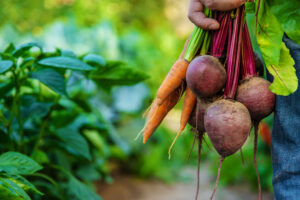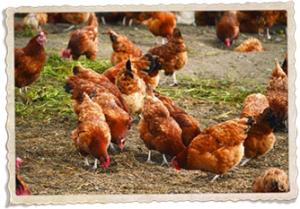When you’re in the grocery store, you may notice that some foods are labeled with the USDA Certified Organic seal. In fact, if you’re a farmer or backyard chicken owner, you may be trying to get that USDA Certified Organic seal for yourself.
But what makes this seal so special? Why does it make certain products stand out from the rest? Largely because products that are labeled as USDA Certified Organic used no antibiotics, synthetic hormones, toxic pesticides, or GMOs. Let us explain:
No Antibiotics
Certified organic products must not use any antibiotics. This is because the overuse of antibiotics can result in “superbugs” that evolve to resist antibiotics. If these superbugs cannot be killed, then we can wind up ingesting them when we eat our animal products.
As such, organic farmers must take steps to prevent illnesses and the spread of disease. If an animal gets sick, they will try their best to use other means of curing the animal. However, if antibiotics must be used, then that animal will lose its certified organic label.
No Synthetic Hormones
Man-made, or synthetic hormones, can stay in animal products that we eventually ingest. As such, certified organic farmers must not use any synthetic hormones to increase production. However, one synthetic hormone is allowed—oxytocin.
No Toxic Pesticides
Pesticides and herbicides are used to prevent pests. Unfortunately, those chemicals can stay on our food and get into our bodies. As such, organic farmers must not use toxic pesticides or herbicides on their products.
No GMOs
GMO stands for “genetically modified organism.” GMO crops, for instance, are made by inserting a gene from an unrelated species into a plant to cause a particular trait. GMOs are strictly prohibited on organic farms, including both for crops and cloned animals.
At the end of the day, organic farming is good for us, good for the environment, and good for our chickens. To get started on raising your own backyard flock, look through our website here at Chickens for Backyards.

